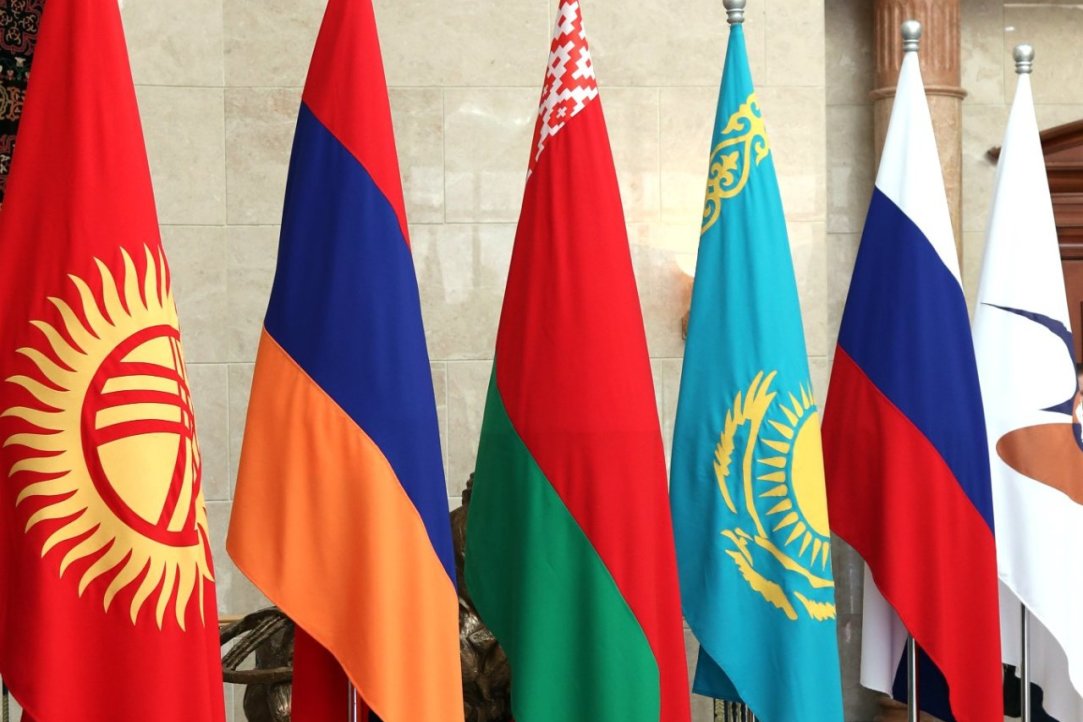Human Capital, Innovation, and Fintech: What the Future Holds for Eurasian Integration

To what extent do the countries of the Eurasian Economic Union (EAEU) benefit from an open economy? What financial, scientific, and educational policy tools will contribute to the implementation of the recently approved ‘Strategic Directions for the Development of Eurasian Economic integration until 2025’? These questions were discussed by participants in a series of expert discussions at the XXII April International Academic Conference on Economic and Social Development organised by HSE University and Sberbank.
A Barrier-Free Environment within EAEU
At the end of last year, the ‘Strategic Directions for Developing Eurasian Economic Integration until 2025’ were approved. The document includes about 330 measures, the implementation of which will ensure the accelerated development of national economies through the growth of investment and innovation activity.
The dynamics and prospects of Eurasian economic integration were correlated with the goals and objectives of the document at a special round table, ‘Strategy for EAEU Development until 2025: Drivers and Breakthrough Tools’, moderated by Tatyana Meshkova and Vladimir Izotov of the Institute for Statistical Studies and Economics of Knowledge (ISSEK).
Gohar Barseghyan, Director of the Eurasian Economic Commission’s Integration Development Department, presented the central report at the round table. She highlighted new areas of strengthened cooperation in education, science, health, tourism, and sports. ‘These are promising facets of enhanced integration that aim to develop human potential as a major factor of sustainable and balanced economic growth,’ she said.
The digital tools being implemented in the EAEU provide the five member states with opportunities to build a supranational ecosystem that supports the realisation of four freedoms — barrier-free movement of labour, goods, services, and capital, said Tigran Sargsyan, Deputy Chairman of the Board of the Eurasian Development Bank (EDB) in an honorary lecture entitled ‘The role of supranational and international institutions in the digital transformation of Eurasian countries’.
Open Banking
Tools for the digitisation of common markets were the focus for participants of the round table, ‘Modern Digital Technologies in the Financial Sector: Global Trends and Prospects for Implementation in the EAEU Countries’.
Yury Dranev, Head of Quantitative Modelling Unit at ISSEK, commented on the possibilities of digital currency implementation and its positive effects for EAEU countries.
Fintech start-ups have demonstrated significant flexibility compared to traditional banking during the pandemic, making them a key factor in the post-crisis recovery, said Konstantin Vishnevskiy, Director of ISSEK’s Digital Economics Research Centre.
ISSEK researchers Anastasia Nazarenko and Sofya Privorotskaya spoke about the fastest-growing areas of fintech, which are significantly transforming the work of financial institutions in the Eurasian space. Yaroslav Kabakov, Director of Strategy at FINAM Investment Company, believes that human involvement in routine operations in the banking sector will soon be reduced to a minimum as robot advisers, digital assistants and other solutions based on AI and blockchain will facilitate this.
Nikita Lomov, who recently earned his Master’s in Governance of Science, Technology and Innovation at ISSEK and now heads the analytical department of the Fintech Association, discussed the possibilities of introducing the largescale use of open banking concept in the EAEU countries (by combining solutions based on open universal APIs). He noted the activity of regulators in Belarus and Kazakhstan in implementing this concept.
General Contours of a Common Science and Technology Policy
Approaches to building a system of effective management and the financing of joint research and innovation projects were considered by the participants of the round table, ‘Prospects of Implementing Cooperative Projects in the Field of Science and Technology to Build a Eurasian Innovation Area’, which included employees of relevant ministries of EAEU member states, Eurasian Economic Commission (EEC) development institutions, and universities.
The main sources of funding for collaborative projects are the Eurasian Development Bank and the Eurasian Fund for Stabilisation and Development, noted Zhaslan Azenov, Deputy Director of the EEC Industrial Policy Department. These also include resources of the Astana International Financial Centre, national government programmes, and funds from non-governmental investors.
Alexander Sokolov, Director of the International Research and Educational Foresight Centre and Deputy Director of ISSEK, proposed to develop a forecast of the EAEU's scientific and technological development up to 2040. Evgeniy Kutsenko, Director of the 'Russian Cluster Observatory' Centre at ISSEK, drew attention to the tools of smart specialisation and cluster policy as a resource for interregional cooperation and integration development.
Representatives of the HSE University campuses in Moscow and St. Petersburg and the University of Central Asia shared their successful experiences of already implemented projects in science and technology. The participants emphasised the role of universities and research centres as the main initiators of research and innovation projects with a potential for replication in the EAEU, and they also presented recommendations on enhancing the effectiveness of horizontal cooperation between universities and research centres of the Union states.
HSE University provides analytical support for integration processes within the EAEU on a wide range of topics, from digital transformation to identifying priorities for scientific and technological development; it also implements a number of joint educational programmes with the EEC. Areas of cooperation with the EEC are defined in two-year cooperation programmes. The next one (up to 2022) was signed at an event at the XXII April conference. Overall coordination of HSE University’s involvement in the Eurasian integration area is provided by the Competence Centre for Cooperation with International Organisations, ISSEK of HSE University.
The XXII April International Academic Conference on Economics and Social Development will be held from April 13 to 30, 2021. For the first time, the conference is co-organised by HSE University and Sberbank. The programme includes a series of academic and expert discussions that will be held as part of the HSE-Sberbank Discussion Club – an expert platform that brings together academics, business representatives, and public officials to discuss critical economic and social challenges and share best practices in the sphere of business and institutional development, thereby laying out a path to the future.
Source: HSE University official website
